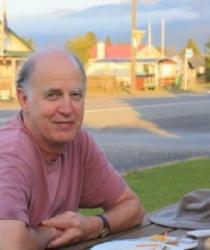
Peter Farrell is quick to acknowledge the dichotomy that affects his professional life and the school where he received the greater part of his education. Now Emeritus Professor of Education Psychology at Manchester University and one of Britain’s pre-eminent experts on inclusive education, Peter remains conscious of the privileged nature of life at Bedales.
“Yes, to get straight to the heart of the matter,” he asserts, “I think that most of us at Bedales were aware that we were extremely fortunate to be there and this may have led some of us to feel ‘superior’ to children who were not so lucky. I dare say that some of us may have looked down on Churcher’s pupils, for example. At the same time, we felt different from people who went to other public schools such as Winchester or Harrow. Perhaps as a result of our feeling that we were in a somewhat unique educational environment, many of my Bedalian contemporaries developed a keen social conscience, together with the confidence to realise that it was OK to question authority and be critical of it. That sort of attitude helped you to grow up quickly. Certainly when I moved on to university, I was regarded by some of my contemporaries as quite mature for my age.”
When Peter arrived at Bedales in 1959, his older brother Julian was already at the school and Peter himself settled in quickly. “Being tall and quite good at sport helped me to fit in,” he recalls. “I always liked the Bedales’ attitude to sport – you played hard, but results were not the ‘be-all and end-all’ and you didn’t mope around if you had lost. I remember that Norman Bellis was very strong on instilling that kind of attitude into us. His successor, on the other hand, favoured a win at all costs approach and a smart turnout and I rather fear that we tended to ignore him!”
Perhaps surprisingly, Peter relates that he did not excel academically at Bedales. “I was just hanging in there a lot of the time,” he says. “I was never made to feel stupid, however. The environment allowed for smaller classes, gave you time to learn and re-take your lessons and as a result, I improved.” Arts and crafts, on the other hand, remained something of a closed book. “I was just hopeless at these subjects,” Peter laughs. “My brother Julian was a great musician and my younger brother Martin was fantastic at art and design, but that sort of ability completely passed me by.”
Despite this, Peter was gaining a reputation as someone with an interest in people and a talent for empathising with them. “My nickname used to be ‘Personal Pete’”, he reveals, “and I started to think about using that side of my character in what I might do in later life. When I was about 16, I chatted to my parents about possibly becoming a social worker or educational psychologist and, I am ashamed to say, partly because of the salary difference, I opted for educational psychology.”
Peter was now very much politically a man of the left and at Bedales, where there were a number of kindred spirits. “I think that a lot of my friends were of much the same political persuasion and other senior staff were, I believe, card-carrying members of the Labour Party,” he says. “1964, my final year at Bedales, was also the year of that seminal election when Harold Wilson became Prime Minister for the first time. We had our own mock election at school and I must admit to being delighted when Gyles Brandreth stood as the Tory candidate and lost!”
When he subsequently had children of his own, Peter was clear about what he wanted for their education. “I was particularly keen to find a secondary state school that embraced the values that I’d regarded so highly at Bedales,” he says. “I had become an educational psychologist by then and knew a few people who were able to give me the right information about where such schools might exist. As soon as I knew, I bought a house in the catchment area!” Peter chooses his next words carefully: “I do believe that there is a strong case for public schools to be abolished. Such schools attract better teachers and more able children whose parents can afford the often exorbitant fees. Hence they run the risk of being socially divisive by achieving educational standards that state schools could not possibly match. However, abolishing public schools is an entirely unrealistic aim, because, amongst other reasons, such a move fundamentally undermines the concept of freedom of choice.”
Before taking his degree in psychology at Liverpool University, Peter spent six weeks at a school for emotionally disturbed children in East Sussex. “That was a tremendous eye-opener, which taught me a hell of a lot,” he remembers. Immediately after that, he went to work at an approved school in Scotland, where experience was even more dearly bought. “That was very tough,” he says. “I’d been a volunteer down in Sussex; now, I was getting paid, which meant rotas and responsibility, and I’m afraid that I did lose control of my charges at times. A baptism of fire, you could call it.”
It was all good preparation for life as an educational psychologist, though. After his degree, Peter trained as a teacher at Manchester University, applied those lessons practically for a couple of years as a teacher in Rochdale and worked as a trainee educational psychologist in Liverpool, before taking a Masters degree in Educational Psychology at Birmingham University. He joined the staff of the School of Education at Manchester University in 1977, where he has spent the rest of his professional life in the role with which he is principally associated, training educational psychologists and ultimately becoming Research Director and Sarah Fielden Professor of Special Needs and Educational Psychology, as well as the President of the International School Psychology Association. A renowned specialist in, and prolific author on, inclusive education and children with emotional, behavioural and social difficulties, Peter has helped to develop training and support services not just in the UK, but in places as far-flung as Palestine, Hong Kong, Malta, Cyprus and Slovakia.
“To develop effective inclusive education, you need good planning; it doesn’t just happen,” Peter observes. “Schools need to be able to establish their policies and be allowed, and have the funding, to make the necessary arrangements. I have always believed that children with special needs cannot only thrive in a normal school environment, but can also add something of great importance to the culture of those schools and allow mainstream children to develop a more balanced view of life. The objection is often that such children have a negative impact on high achievers, but I have never seen any evidence that this is the case.”
Between 2004 and 2006, Peter was part of a research team that conducted a landmark study of two million British school children, aged between 5 and 18. The results have been a springboard for the further development of inclusive education in the UK over the past decade and would, for many people, constitute a suitable monument to their life’s work. Peter modestly waves this aside. “The work in helping to grow educational psychology services and training facilities in the UK and around the world is what I have found particularly satisfying,” he says. “If people want to remember me, I would hope that it would be as someone who was a great supporter of his profession.”
Peter Farrell was interviewed by James Fairweather in February 2014.
